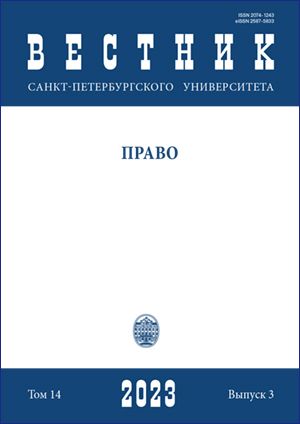Legal framework, limits and standards for the application of the right to be forgotten: The experience of the European Union
DOI:
https://doi.org/10.21638/spbu14.2023.312Abstract
The right to be forgotten is the right of individuals to exclude, restrict or delete links and personal information on the Internet. The article focuses on the legal basis of the realization of the right to be forgotten. In this regard, the provisions of the previously existing Directive 95/46/ EC, the new EU data protection regulation, as well as the case law of the EU Court of Justice are analyzed. It is noted that despite the fact that the Directive did not directly provide for this right, nevertheless, its provisions allowed the EU Court to derive the right to be forgotten through an evolutionary interpretation. The author analyzes the doctrinal positions according to which the realization of the right to be forgotten can lead to censorship of the Internet. It is noted that if competing rights are not properly balanced, the right to be forgotten can lead to unjustified censorship on the Internet. Particular attention is paid to the legal positions of the EU Court, which in 2014, in a ruling in the Google Spain case, for the first time internationally enshrined the right to be forgotten. The arguments revealing the significance of this resolution for the subsequent realization of this right are given. With regard to extraterritorial application, it is noted that the EU Court of Justice is striving for a global application of the right to be forgotten, allowing member States to adopt more extraterritorial protective mechanisms. It is noted that until a consistent practice is formed, the right to be forgotten will continue to remain an “unpredictable” right. In conclusion, the author points out that only time is an indicator of whether the right to be forgotten can become the most effective way to establish a balance between government agencies, Internet service providers and Internet users.
Keywords:
the right to be forgotten, data protection, privacy, Big Data, Internet
Downloads
References
Downloads
Published
How to Cite
Issue
Section
License
Articles of "Vestnik of Saint Petersburg University. Law" are open access distributed under the terms of the License Agreement with Saint Petersburg State University, which permits to the authors unrestricted distribution and self-archiving free of charge.






